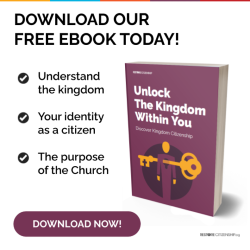When we say judgement must begin at house of the Lord are we talking about a religious experience of conviction, or are we thinking of an entire theocratic judicial system initiated by the Lord to address sin and provide a governance for his nation?
1 Peter 4:17 For the time has come for judgment to begin at the house of God.
Much of todays understandings around this text emphasize the former rather than the latter.
At the time when the original statement was made, believers were suffering at the hands of those around who were consistently undermining this 'new faith' as weak and impoverished.
The original term christian 'little christ' was actually used by unbelievers to undermine those who had come into the Kingdom of God. Read Acts 11:26.
This period parallels with historical events regarding the deliverance of Israel from Egypt as slaves and the formation in the wilderness into a nation of citizens. At a time whereby the hebrew nation were going to enter the land of Canaan under the leadership of Joshua. This land was already occupied by firmly established nations. ie nations with authorities, law, government, citizenship and culture.
With the departure of Moses drawing near, Moses sought to remind the Israelites of the Lords love and continual affection for his people.
He states:
The Lord did not set his affection on you and choose you because you were more numerous than other peoples, for you were the fewest of all peoples. Deuteronomy 7:7
The book was recorded as an additional covenant written to articulate how the nation of Israel were to live in the land. It emphasized the peculiarity of their citizenship as Israelites.
Hence much of the statutes draw distinctions against surrounding nations. What was very clear to the Israelites during this period of transition was the authority, law and government in their midst.
Despite much resistance, the Lord through Moses had established the core components which would make the Israelites a nation.
First the Israelites were introduced to his authority at Sinai, this was shortly followed by his law, then the formation of his government, the tabernacle, priests and the seventy elders.
By the time they arrived at the Jordan the ark, the tabernacle, the priests and the elders went before the people to cross into the promised land.
What the people saw was the peculiarity of their kingdom enshrined in institutions which set them apart as a nation amongst nations.
The unique administration of their kingdom was the heartbeat of what it meant to be an Israelite. The administration of the tabernacle at shiloh underpinned the progressive governance of the Lord amongst his people and maintained his authority as they grew within the land of Canaan.
Why discuss this particular period?
Well comparable with the new testament under the authority of Christ a new nation began to be formed out of the many tribes and nations of the world. This new nation was bound to their King through the new covenant and would like the former nation begin the journey into nationhood. A figure of the ark, Christ had gone before the people in the resurrection to secure the promise of the kingdom. Like the first nation this nation was comparably small and weaker than the surrounding nations.
Similar to the wilderness of the old testament this nation would be formed around its authority, and through the new covenant experience a more profound administration and mediation of the law of God. Through the apostles and prophets the foundation of the government would be established upon which the nation was to grow into maturity. Read Acts 2:42-47
To emerge from this would be new institutions that modelled commonwealth and fuelled active citizenship amongst the corporate body.
This new form of theocratic government initially grew potently in the shadows of the former government (the temple) and quickly expanded beyond the territory. Not unlike the old testament nation the new testament nation understood the fundamentals of their new kingdom and sought to build institutions / administrations which preserved and expanded its value and wealth.
In addition like their authority this nation's strength would grow out of its suffering at the hands of surrounding nations due to its peculiarity and loyalties to the ascended King. Read Psalm 2:1.
At the time of Peter's writings the concept of the house of the Lord was still evident within the minds of his hearers.
The apostles and prophets had successfully laid down the foundation of government upon which Christ was the cornerstone. Despite the success of these communities known as “ekklesias” they faced a barrage of challenges.
The challenges of:
- Understanding the application of the new covenant.
- Influx of Jews with old covenant thinking and application.
- Influx of new believers with secular beliefs and philosophies.
- Wolves in sheeps clothing seeking to destroy the work.
The impact of these challenges meant:
- Tensions regarding doctrine and its application.
- Resistance to apostolic teachings.
- Merging of secular and biblical thought.
- Usurping of offices and administrations.
This affected the relationship between the individual citizen and their role within the ekklesia. Undermining the concept of the common salvation.
Peter alludes to this when he states:
1 Peter 4:1 Therefore, since Christ suffered in his body, arm yourselves also with the same attitude, because whoever suffers in the body is done with sin.
This scripture doesn't just apply to the believer but also the corporate body the nation.
The believer was never instructed to flee the challenges faced within and without but rather recognise the existence of the challenges because of the introduction and establishment of a new order, The household/government and theocracy of God.
The house of God (government) the body (citizens) must be vigilant to protect what the common salvation provides and see the challenges as part of securing victory.
Today's citizens
Today's citizens struggle with the same challenges as the first century believers, except fearfully our understanding of the house of God has been reduced to a sunday service stripped completely bare of any judicial system.
We are left painfully naked as a people conditioned by religious dogma and activities leaving us with a personal rather than a corporate faith.
Much of 'christian activity' today seems to be focused upon rebuilding and repairing institutions which clearly are not part of the Lords governmental structure. In addition ministries focus more upon gathering rather than building.
Energy is spent either pointing out the corruption and decaying structures of authorities and governments around us and seeking to convert philosophies and institutions to Christ rather than departing entirely from such administrations.
If we are to overcome we must embrace an accurate understanding of the common salvation. We must see salvation as inherently corporate in scope and personally applied.
The recognition and restoration of the common salvation will begin the process of reintroducing localised government with distinct judicial system that preserves the common value of salvation for all.
In short, When we say judgement must begin at house of the Lord we are talking about a personal conviction lead by a reformed way of thinking about the meaning of a corporate salvation. This cultivates and endeavours to colabour with the Lord to establish a theocratic judicial system that provides true governance for his nation?
The above statement in conjunction with the prophets declaration below would bring about a profound sense of meaning and purpose for kingdom citizens.
Isaiah 33:22 For the Lord is our judge, the Lord is our lawgiver, the Lord is our king; he will save us. Selah!
For King and for country...





